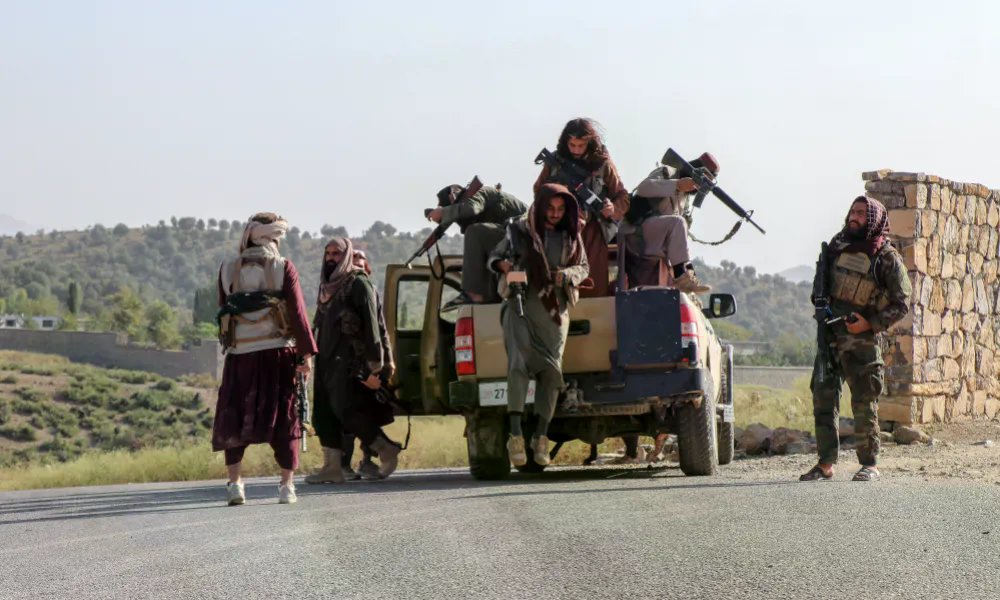
Pakistan’s military has reported the killing of over 200 Afghan fighters in cross-border clashes, while Afghanistan’s Taliban government claims to have killed 58 Pakistani soldiers and wounded 30 others. The conflict has intensified along the shared border, with both sides exchanging accusations of military actions and casualties.
Zabihullah Mujahid, a spokesperson for the Taliban, stated that nine Taliban fighters were killed and several more injured during overnight operations. He also claimed that a “significant amount” of Pakistani weapons were captured. In contrast, Pakistan’s military confirmed the deaths of 23 of its soldiers in the clashes and announced the closure of the border with Afghanistan.
The recent hostilities followed explosions in Afghanistan on Thursday, which the Taliban attributed to Pakistan. This incident marked the most severe escalation in months of deteriorating relations between the two countries. Islamabad has accused Kabul of harboring armed groups responsible for attacks within Pakistan, including the Tehreek-e-Taliban Pakistan (TTP).
Earlier on Sunday, the Taliban claimed to have captured three Pakistani border posts in Kunar and Helmand provinces as part of retaliatory attacks. Enayatullah Khwarizmi, an Afghan Ministry of Defence spokesperson, stated that Taliban forces had conducted “successful retaliatory” strikes against Pakistani troops in response to what he called “repeated violations” and air strikes on Afghan territory.
Pakistani state media reported that its forces seized 19 Afghan border posts, claiming that Taliban fighters either died or fled. A video broadcast by Pakistan Television showed Afghan posts engulfed in flames, with Taliban soldiers allegedly surrendering. Radio Pakistan claimed that the country’s military destroyed several Taliban camps and strongholds, targeting “hideouts of armed groups near the border with great precision.”
Regional powers such as Iran, Qatar, and Saudi Arabia have urged both nations to exercise restraint amid the escalating violence. The fighting has raised concerns about the stability of the region, especially after the recent explosions in Kabul and Paktika, which the Taliban blamed on Pakistan.
Pakistani Defence Minister Khawaja Asif warned that “enough is enough,” signaling potential consequences for continued assaults on Pakistani forces. An unnamed source told Reuters that a strike targeted Noor Wali Mehsud, the leader of the TTP, in Kabul. Relations between Pakistan and Afghanistan have worsened due to allegations that Kabul is sheltering members of the TTP and other militant groups.
The TTP, formed in 2007, was created in response to Pakistan’s military operations in tribal regions supporting the U.S. invasion of Afghanistan. It has since waged a violent insurgency, with recent months witnessing a significant increase in attacks. According to the Pakistan Institute for Conflict and Security Studies, August 2023 was the deadliest month for militant violence in over a decade, with 194 people killed and more than 200 injured in 143 attacks.
Pakistan now ranks second on the Global Terrorism Index, reflecting the severity of the threat posed by armed groups. Tens of thousands have been displaced due to military operations against these groups.
The recent flare-up in tensions coincided with Afghan Foreign Minister Amir Khan Muttaqi’s visit to India, raising concerns in Pakistan about a potential shift in bilateral relations. Pakistan’s military expressed concern over the timing of the clashes, accusing India of being “the biggest sponsor of terrorism in the region.” India denies the claim, while the Taliban asserts it does not allow its territory to be used against other countries.
Iran’s Foreign Minister Abbas Araghchi called for both nations to exercise restraint, emphasizing that regional stability depends on peaceful coexistence. Saudi Arabia also expressed concern, urging dialogue and caution to prevent further escalation. The kingdom reaffirmed its support for efforts aimed at promoting peace and stability in the region.


